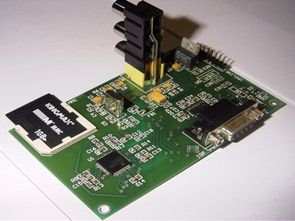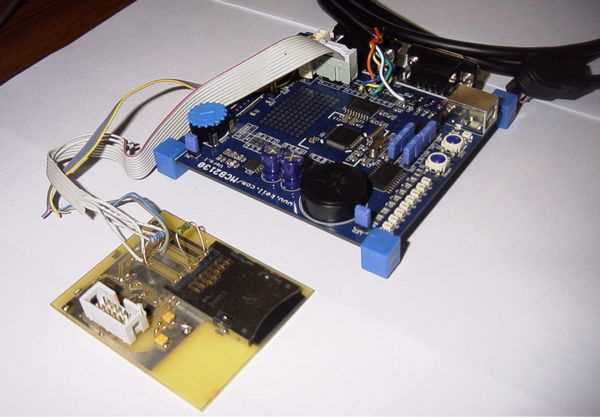
Flash Card Audio Player for Head End Unit This project uses an LPC213x to implement a simple digital audio player, capable of playing music tracks from a removable flash card. The player is controlled using the component-bus interface from a car audio head-end unit, and provides a line out stereo signal, suitable for plugging into the auxiliary input connector of the head-end unit. Author: Lindsay Meek
Resource Requirements
TOOLCHAIN GCC within Keil uVision
RAM 11K
ROM 24K
CPU CLOCK 60 MHz
UARTS 1 (For In-circuit programming and debugging)
SPI 2
I2C 1
TIMERS 2
INPUT CAPTURES 1
GPIO USED 15 (Include Peripherals)
MODES Thumb (Background), ARM (IRQs)
INTERRUPTS 2
TARGETS LPC2132, LPC2134, LPC2136, LPC2138
LPC2131 with a smaller DAC sample buffer

Head End Protocol Disrupt
The head-end protocol program consisted of a SPI-like servile [1], with a concentrated bi-directional accumulation connexion, with a 1ms gap between bytes, and a 50ms+ gap between packets.
As no SPI skirting was free on the LPC213x to cater the low-level byte program, a bit-banging software act was victimized. This operated using Timer1, with a compounding of slip charm on the bus timekeeper differentiation and oscillating counters.
Şifre-Pass: 320volt.com
Published: 2010/05/23 Tags: arm project, microcontroller projects
LPC2138 arm microcontroller based check point
Though the MCB2130 inhabit has an LPC2138 microcontroller built-in, any member of the LPC213x parentage is fit for this program. The ornament can be customised to remaining members of the LPC213x, it retributory depends on the name of records the someone necessity to store in the Wink Memory. Typically, with 512KB of Radiate, it is thinkable to accumulation up to 2000 records!